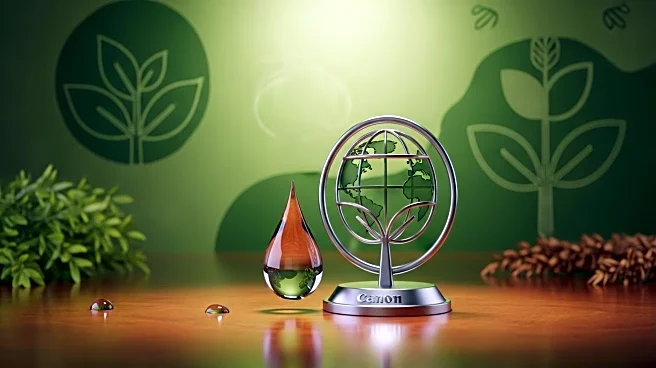What is the story about?
What's Happening?
The National Association of State Departments of Agriculture (NASDA) concluded its 2025 Annual Meeting in Rogers, Arkansas, with significant announcements impacting the agricultural sector. The event, attended by 453 in-person and 116 virtual participants, focused on the theme 'Securing Our Future Through Agriculture.' Key highlights included remarks from Arkansas Governor Sarah Huckabee Sanders and U.S. Secretary of Agriculture Brooke Rollins. Rollins announced the America First Trade Promotion Program, set to launch on October 1, 2025. Additionally, the PFAS and Agriculture Policy Workgroup released the first comprehensive federal recommendations to address PFAS contamination in agricultural land. NASDA elected its 2025-2026 President, Commissioner Amanda Beal of Maine, and appointed new policy committee leadership. A Memorandum of Understanding was signed between NASDA, NASDA Foundation, and the National Agricultural Law Center to enhance agricultural policy education and student opportunities.
Why It's Important?
The announcements made at NASDA's annual meeting have significant implications for the U.S. agricultural industry. The America First Trade Promotion Program aims to bolster trade opportunities for American farmers, potentially enhancing their competitiveness in global markets. The PFAS recommendations address a growing environmental concern, offering solutions to protect agricultural lands from contamination, which is crucial for maintaining the safety and abundance of the U.S. food supply. The election of new leadership and the signing of the MOU highlight NASDA's commitment to advancing agricultural policy and education, fostering future industry leaders. These developments could lead to strengthened agricultural practices and policies, benefiting farmers, ranchers, and the broader economy.
What's Next?
The launch of the America First Trade Promotion Program on October 1, 2025, will be a key focus for stakeholders in the agricultural sector. The program's implementation may prompt reactions from trade partners and influence market dynamics. The PFAS recommendations could lead to policy changes at the federal and state levels, with potential legislative actions to address contamination issues. NASDA's new leadership will likely prioritize these initiatives, working with Congress and the Administration to adopt nonpartisan policies that support the agricultural industry. The MOU's student-focused programs and joint conferences will begin to take shape, offering new opportunities for engagement and education in agricultural policy.
Beyond the Headlines
The focus on PFAS contamination highlights the intersection of environmental and agricultural policy, emphasizing the need for sustainable practices. The collaboration between NASDA, NASDA Foundation, and the National Agricultural Law Center underscores the importance of education in shaping future agricultural leaders. These efforts reflect a broader trend towards integrating environmental considerations into agricultural policy, which could lead to long-term shifts in industry standards and practices.















